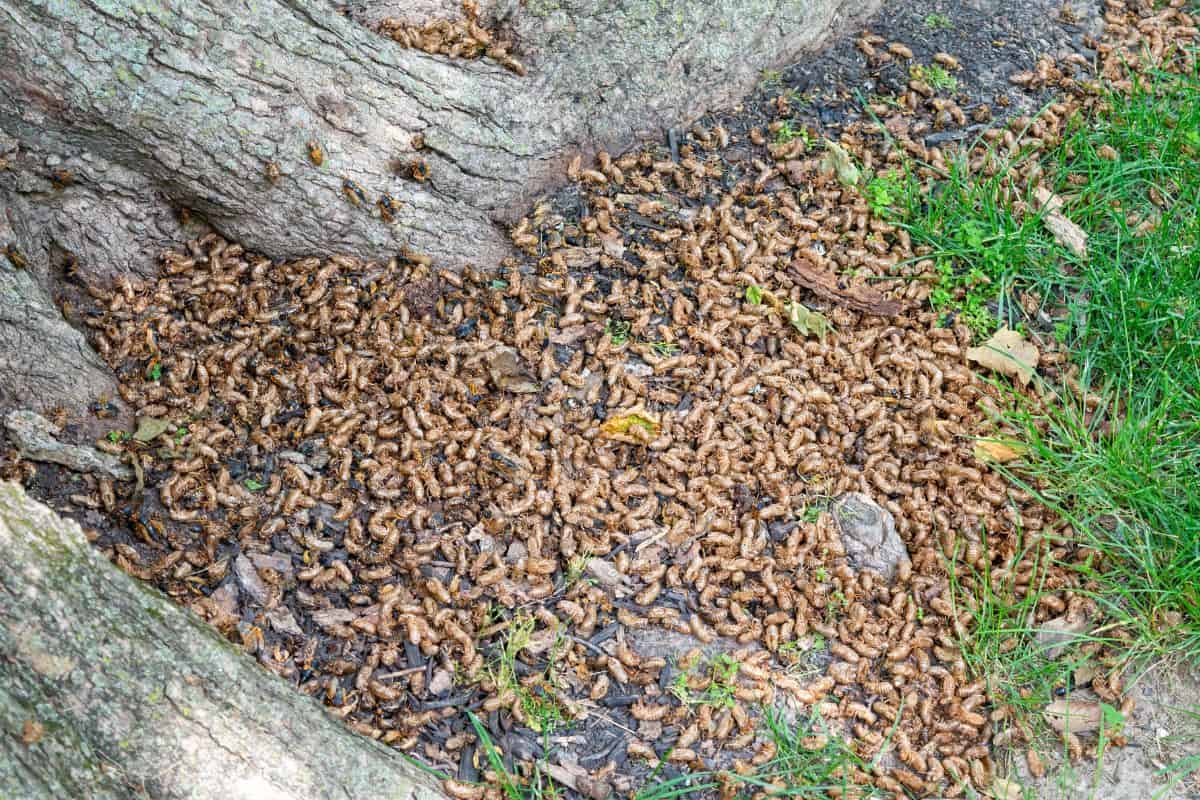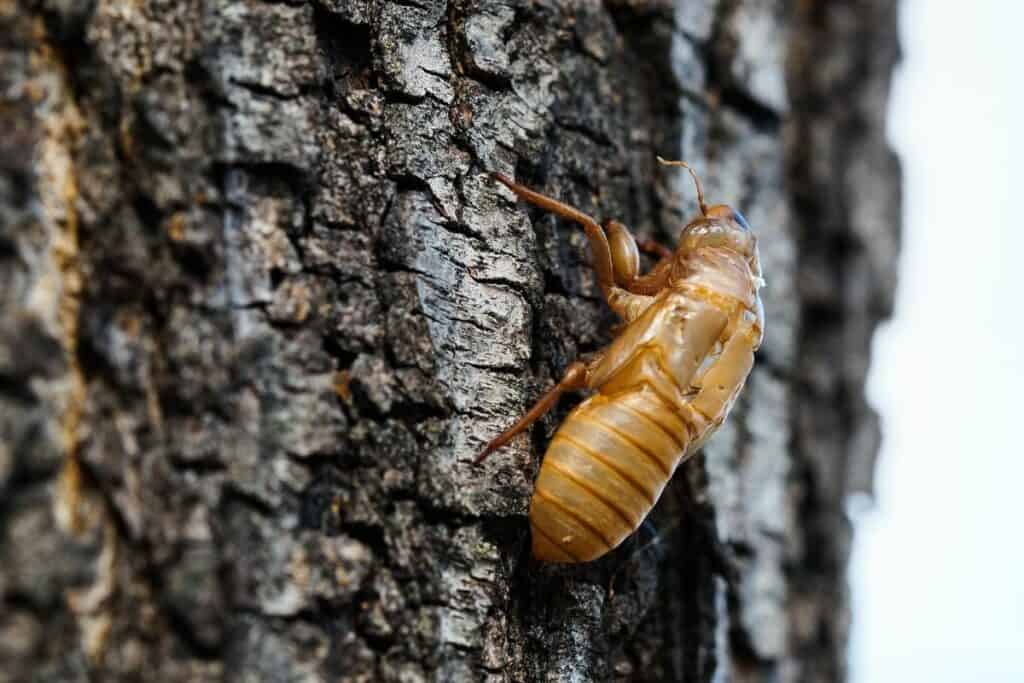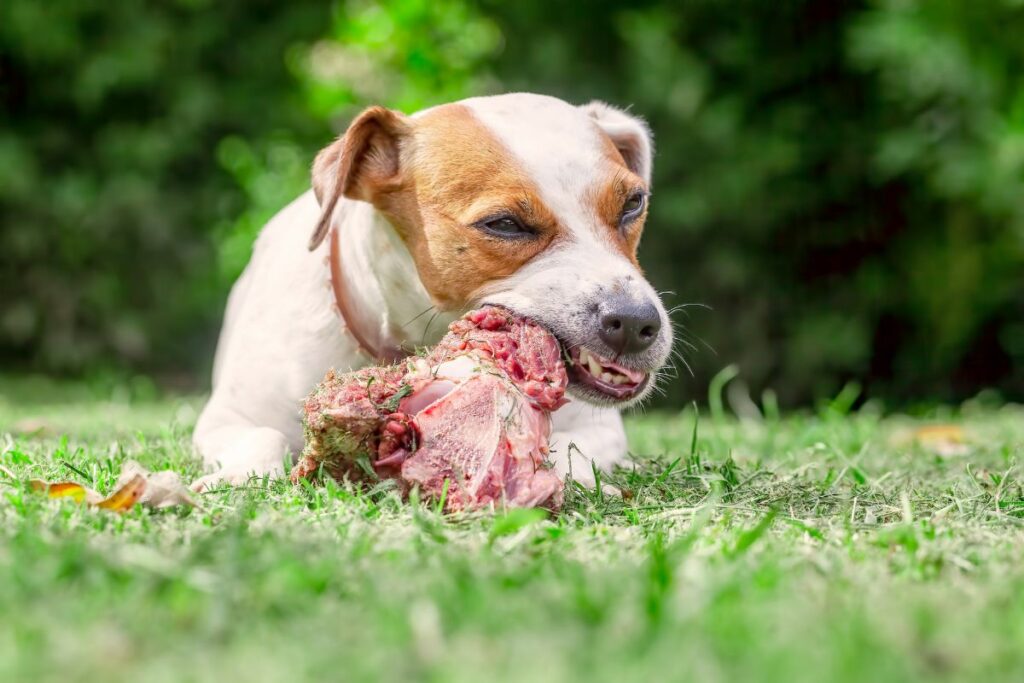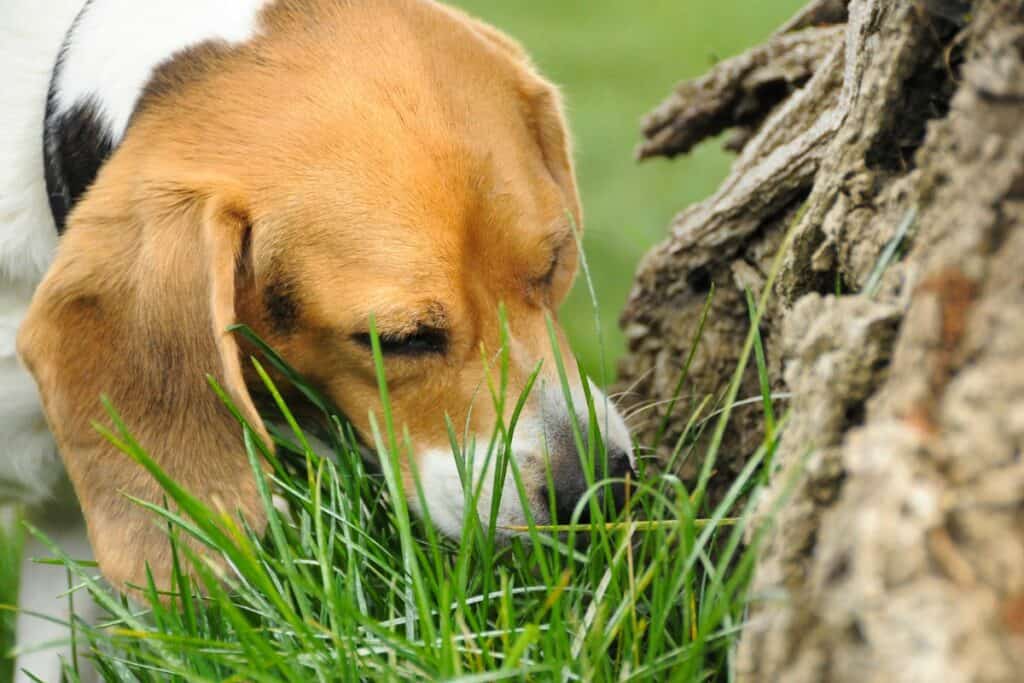Can dogs eat cicadas? Yes, they can, but there are some precautions to keep in mind. With nearly 20 years of experience in pet care and education, I’ve seen many dogs intrigued by these buzzing insects. While cicadas are generally not toxic, they can pose certain health risks, such as gastrointestinal upset or choking hazards. Let’s explore the fascinating world of cicadas and understand how they might impact our dogs, ensuring their safety and well-being during cicada season.
What Are Cicadas?
Cicadas are intriguing insects known for their distinctive buzzing sound and periodic emergence. These insects, belonging to the Cicadidae family, have a unique lifecycle that can span anywhere from a few years to over a decade, depending on the species.
Lifecycle and Periodic Emergence: Cicadas spend most of their lives underground as nymphs, feeding on tree roots. When they emerge, usually in large numbers, they molt, leaving behind their exoskeletons. This emergence is often a source of curiosity for dogs.
Physical Characteristics: Cicadas are relatively large, with transparent wings and prominent eyes. Their size and movement can make them an attractive target for playful dogs.
Are Cicadas Safe for Dogs to Eat?
As someone who has spent decades observing and caring for dogs, I can tell you that dogs are naturally curious and often explore the world with their mouths. Cicadas, being abundant and lively during their emergence, can easily become a snack. Unlike behaviors like eating grass that serve a purpose, dogs do not eat cicadas to fill a void in their diet. It is more out of curiosity and their crunchy shell that attracts dogs to eat them.
General Safety: Generally, cicadas are not toxic or poisonous to dogs. They do not contain harmful substances that would make them dangerous upon ingestion, but we should limit them from eating too many as it can cause discomfort.
Potential Risks:
- Choking Hazard: Cicadas are fairly large, and a dog might choke if they swallow one whole.
- Chemical Risks: If cicadas have been exposed to pesticides, these chemicals can be harmful to dogs. Always be cautious of the areas where your dog is exploring.

Are Cicadas Toxic to Dogs?
Understanding what makes something toxic is crucial. Toxic substances are those that can cause adverse health effects. For dogs, this can mean anything from gastrointestinal distress to more severe symptoms.
Cicadas and Toxicity: According to veterinarians at Blue Pearl Pet Hospital, cicadas themselves do not produce toxins that are harmful to dogs. However, if they have come into contact with insecticides or other chemicals, these can pose a risk.
Health Implications of Dogs Eating Cicadas
From my experience, while most dogs can handle an occasional cicada, there are several health implications to consider.
Gastrointestinal Issues
- Upset Stomach: Dogs may experience vomiting or diarrhea after eating cicadas, especially if they consume them in large quantities.
- Digestive Blockages: The exoskeleton of cicadas can be tough to digest, potentially leading to blockages.
Allergic Reactions
- Signs to Watch For: While rare, some dogs might have allergic reactions to cicadas. Symptoms include itching, swelling, and difficulty breathing.
Nutritional Considerations
- Limited Nutritional Value: Cicadas do not provide significant nutritional benefits and are more likely to cause digestive issues than offer any health advantages.
Preventive Measures
To keep your dog safe, consider these preventive measures:
Monitoring Outdoor Activities
- Supervision: Keep a close eye on your dog during cicada emergence periods.
- Leash Walks: Use a leash to control your dog’s movements and prevent them from eating cicadas.
Training Tips
- Skills: Teach your dog skills like “leave it” or “drop it” to discourage them from eating cicadas.
- Positive Reinforcement: Reward your dog for ignoring cicadas with treats or praise.
Environmental Management
- Yard Maintenance: Regularly check your yard and remove any cicada shells or insects you find.
- Safe Play Areas: Create designated play areas away from where cicadas are most prevalent.
What to Do If Your Dog Eats Cicadas
Even with preventive measures, dogs might still get their paws on a cicada. Here’s what to do:
Immediate Actions
- Monitor Your Dog: Watch for any signs of distress such as vomiting, excessive drooling, or coughing.
- Check for Choking: Ensure your dog is not choking on a cicada.
When to See a Vet
- Severe Symptoms: If your dog shows signs of severe gastrointestinal distress, lethargy, or difficulty breathing, contact your vet immediately.
- Persistent Issues: If minor symptoms persist for more than 24 hours, it’s best to seek veterinary advice.
Home Care Tips
- Hydration: Ensure your dog stays hydrated, especially if they’ve experienced vomiting or diarrhea.
- Dietary Adjustments: Offer a bland diet to soothe their stomach.
Frequently Asked Questions
Cicadas are generally not poisonous to dogs. However, consuming large quantities can cause gastrointestinal upset.
While rare, some dogs may have allergic reactions to cicadas. Symptoms can include itching, swelling, or difficulty breathing.
There is no specific limit, but it’s best to limit consumption to a few cicadas to avoid digestive issues.
Cicadas are high in protein, which can be beneficial in moderation, but they should not be a primary food source.
Cicadas do not bite or sting. They are generally harmless to both humans and pets.
Key Takeaways
While cicadas are generally not toxic to dogs, they can still pose some risks, especially if consumed in large numbers or if they have been exposed to pesticides. By monitoring your dog’s activities, providing proper training, and knowing what to do if your dog eats cicadas, you can ensure their safety and well-being. Always consult with your vet for personalized advice tailored to your pet’s needs.

Joseph Schifano is the President of The Academy of Pet Careers and Founder of DogNerdly.
With over 20 years of professional pet experience, Joseph got his start as an owner/operator of a 7-figure, all-inclusive pet care business. From there, he purchased The Academy of Pet Careers with a hopes of improving the quality of care provided by industry professionals. This role allowed Joseph to rub shoulders with some of the biggest names in the industry, and gain knowledge in every aspect of pet care.
After witnessing the popularity of social media influencers and the amount of misinformation being taught to pet parents, Joseph decided to create DogNerdly. The goal was to provide science-backed education for the average dog nerd in order to create a world where dogs and humans can live a more harmonious and empowered lifestyle.




